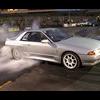Walbro Fp + Constant Power Pressure?
Announcements
-
Similar Content
-
Latest Posts
-
I have engineer in my job title One of or motto's though is "we make and we break"
-
This is actually 2 whole different trains of thought that need to be addressed separately. No, as Matt says above, "Engineer" is not a directly protected title. A lot of guys who just do mechanical design via CAD, with or without even some sort of associate diploma in engineering, often have the job title of "Design Engineer". A train driver can probably still describe themselves as an engineer. But, to usefully get employment with anyone as a proper engineer, you're going to have to have at least the necessary and relevant degree qualification. You're not going to get a job as an electrical engineer if you have a chem eng degree, unless you can demonstrate x number of years of working in that capacity, sufficient knowledge, etc. Having the degree is at least in indication that you've seen the relevant text books, even if you haven't read them (like pretty much the last 10 years of graduates!). To be a self employed engineer.....you could get away with quite a lot pretending that you're suitably qualified, without actually being a proper engineer. But, you will find yourself unable to work for a large section of the client space because a lot demand CVs and capability statements when considering contracting for any engineering work these days. Insurances too. If you're not a proper engineer, it will be much harder to obtain proper PI insurance. Insurance companies have gotten hip to that. The "Professional Engineer" thing is a thing in Australia. If you have the right qualifications and experience you can apply to the relevant engineering top level body (mostly Engineers Australia, the less said about whom, the better), to be assessed and approved as a Chartered Professional Engineer, CPE. There are high bars to get over and a requirement for CPD to maintain it. The RPEQ thing is similar-ish, in that you have to demonstrate and maintain, but the bars are a little lower. It is required to be RPEQ in order to sign off as an engineer on any engineering design in Queensland. The other states haven't fully followed suit yet. There's "engineering" and there's "engineering". Being an engineer that signs off on timber (or even steel) frames for housing projects, council creek crossing bridges, etc, is a flavour of civil engineering that barely warrants the name, description and degree. That would be soul crushing work anyway. Being an automotive engineer working in the space where you have to sign off on modifications to cars and trucks would also be similarly soul crushing. At least partly because of the level of clientelle, their expecations, depths of bank balance, etc. And that brings us to your second question. No, we do not have professional engineers "do vehicle inspections". Well, not the regular roadworthies, etc etc. That's done by mechanics. There might be some vehicle standards engineers at the various state govco inspection stations where cars go to get defects cleared and so on, but that's because they (the cars) are there specifically for defect inspection and clearance and so the stakes are a little higher than on an annual lights and brakes working check. But, if you modify a vehicle in Australia, you have to get it engineered. A suitably qualified (and effectively licensed, which I will get back to) automotive engineer will have to go over the application, advise on what would be required to make the mods legal, supervise some parts of the work, inspect and test the results, and sign off. The "licensed" aspect comes from there being a list of approved engineers to do these things in each state. They have to jump through hoops set up by the govco vehicle standards divisions that mean only the suitably qualified can offer to and approve such mods.
-
It's got a problem Prank... It looks like both washer spray caps have fallen off this car... 😛
-
Meh, it's only got to last another 10 years or so until you'll be forbidden to drive it. Keep it dry and forget about it.
-
The title of Engineer is not protected. However different states have different rules about what an Engineer requires to operate. Engineering for a motor vehicle modification is very different to engineering for a bridge, electronics, etc, including what that engineer needs as certifications. In Canberra, "Engineer" is the loosest category with basically nothing stopping you calling yourself and engineer and designing a bridge or building. From what I've reviewed, QLD has the strictest requirements through RPEIQ.
-





Recommended Posts
Create an account or sign in to comment
You need to be a member in order to leave a comment
Create an account
Sign up for a new account in our community. It's easy!
Register a new accountSign in
Already have an account? Sign in here.
Sign In Now